From golf partner to Russia envoy. Why Donald Trump chose Steve Witkoff to reset relations with Vladimir Putin
The billionaire real estate developer's rapid promotion over more experienced colleagues has sparked concern in Washington and Kyiv.
By Liza Fokht and Sergei Goryashko.
Donald Trump’s return to the White House has seen a radically different approach to the way US conducts foreign policy. Instead of relying on diplomats and seasoned experts, the president has turned to members of his inner circle to represent Washington’s interests abroad.
Few embody this shift better than Steve Witkoff, a real estate developer and the president’s golf partner. Despite Witkoff’s total lack of diplomatic experience, the White House has entrusted him with rebuilding relations with Russia and ending the war in Ukraine.
The BBC spoke with former White House and State Department officials about this reset - and why Kyiv and its allies are watching it with concern.
In March, the conservative commentator Tucker Carlson broadcast an interview on his YouTube channel with Steve Witkoff, whom he described as “the most effective American diplomat of his generation” even while noting his lack of experience in the field.
It is true that the 68-year-old businessman was little known outside America before Trump’s re-election.
But in just a few months he has become a key figure in U.S. foreign policy. While one international crisis might have been considered enough even for seasoned diplomats, the White House has enlisted Witkoff’s efforts on three at the same time: Iran, Gaza, and Russia’s war in Ukraine.
Kremlin talking points
Witkoff's involvement in negotiations with Moscow came as a surprise.
Before Trump's inauguration, it was clear that the businessman would play a role in the war between Israel and Hamas. Even before he officially took up the role of Middle East envoy, Witkoff reportedly pushed Israeli Prime Minister Benjamin Netanyahu into agreeing a ceasefire.
But the Russia portfolio was expected to go to another special envoy, Keith Kellogg - a U.S. Army veteran with prior White House experience.
In February, however, Witkoff flew to Moscow on his private jet to meet with Russian President Vladimir Putin. Those unexpected talks marked the first public contact between Putin and a high-ranking American official since the start of the full-scale invasion of Ukraine.
Witkoff returned from Moscow with freed American teacher Marc Fogel, who had been serving a sentence in Russia on drug smuggling charges. The visit kicked off a wider diplomatic process: days later, Trump and Putin held a phone call and began talks on resetting relations and ending the war.
Since then, Witkoff has hosted Russian officials in Washington, traveled to Riyadh for negotiations with Russian diplomats, and met Putin a further three times.
At the most recent of these meetings, Witkoff told the Russian president it was “so good” to see him, having previously described Putin as "great leader," a "super smart" man and a politician who seeks "lasting peace” despite the ongoing war.
These and other public comments have fuelled unease among those who support Ukraine.
In his interview with Tucker Carlson, Witkoff echoed Kremlin talking points when he said the key issue of the conflict was the plight of “Russian speaking residents” in occupied eastern Ukraine who had “voted in referendums” to join Russia.
What caused perhaps more alarm were statements that revealed a shaky grasp of facts. He struggled to recall the names of the annexed regions of Ukraine, and agreed with Carlson's incorrect assertion that all the occupied territories had been handed to Kyiv by Soviet leader Nikita Khrushchev.
Following the Carlson interview, there were calls from Kyiv to remove Witkoff from the negotiation process.
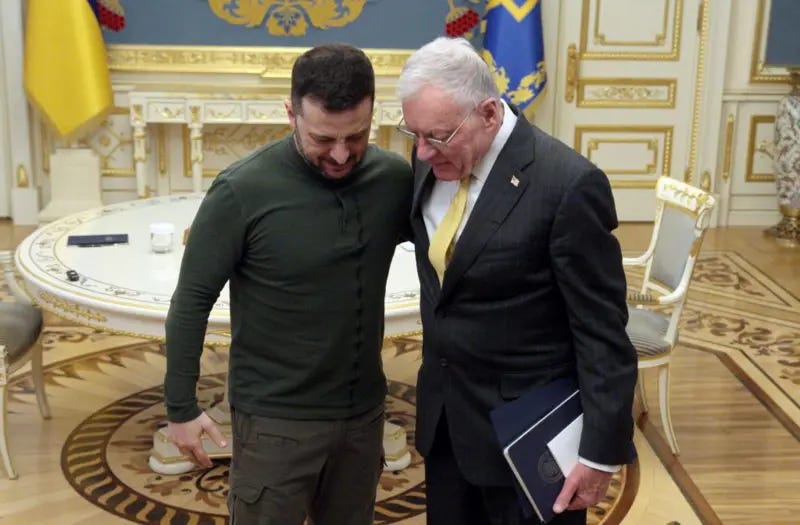
Oleksandr Merezhko, the chairman of the Ukrainian parliament's Committee on Foreign Affairs, said: "We are talking about a presidential envoy who is supposed to have professional knowledge of this issue and understand at least the basics - the obvious things. And he doesn't”.
U.S. Vice President J.D. Vance personally stepped in with a good word for Witkoff. Vance said the envoy was doing an “incredible job” and that those who criticised him were envious of his success.
"It turns out diplomacy largely comes down to a simple skill: don't be an idiot,” Vance wrote in a social media post.
Loyalty above all
Witkoff is a lawyer by training and a long-time Trump loyalist. Raised in New York, of Jewish ancestry with roots in the former Russian Empire, he met the future president in the 1980s during a real estate deal. A ham and cheese sandwich - paid for by Witkoff one lunchtime when Trump had forgotten to bring cash - would spark a decades-long friendship.
Their bond strengthened with the passing years, as Witkoff amassed a billion-dollar fortune and forged international connections, including in the Middle East.
Witkoff has said that Trump supported him through the death of his son from an opioid overdose, and the families share business interests, including a crypto venture. In 2024, they were playing golf together at Mar-a-Lago when an assassination attempt targeted Trump.
Late last year, Witkoff had a grandson. He was named Don, in honour of the US president.
John Bolton, a national security advisor during Trump's first term who has since become one of the president’s fiercest critics, said personal connections like these were behind not only Witkoff’s rapid rise but also the promotion of many others in the administration.
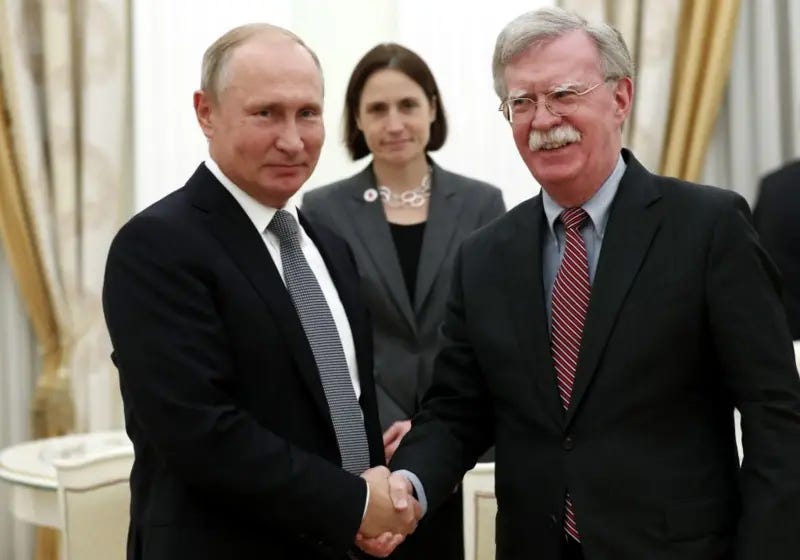
Senior officials came from different backgrounds and had different points of view, Bolton told the BBC, “but they all share one common quality, and that is fealty to Trump. It won’t serve him well and it won’t serve the country.”
He added: “What Trump was looking for in picking his second term team were yes men and yes women, people who would hear him say something and go out and do it.”
Bolton and other sources suggested that Witkoff might have been promoted over Kellogg because of the latter’s relative willingness to express a dissenting opinion.
Kellogg, who had worked in high-ranking positions in the Pentagon and served on the National Security Council during Trump’s first term, had been developing a plan to end the war even before the Republican victory in 2024.
But according to a former White House official who worked on the Russia portfolio, Trump seemingly "didn’t want to hear" advisors who warned that the war could not be resolved quickly. Moscow, too, reportedly preferred a figure less vocal in support of Kyiv.
NBC reported that the Kremlin viewed Kellogg as too pro-Ukrainian, though Moscow rejected the idea it was capable of influencing appointments in Washington.
By March, however, the word “Russia” was removed from Kellogg’s job description and Trump explained that Kellogg would liaise only with Ukraine.
Now Kellogg, according to leaks to the U.S. press, is taking a tougher stance on Russia than Witkoff.
According to Reuters, when the two special envoys met with Trump in April, Witkoff told the president that the quickest way to end the war would be to cede all four Ukrainian regions annexed since 2022 to Russia.
Kellogg reportedly pushed back on Witkoff’s proposal and said Kyiv would never agree to those terms.
Invisible diplomats
Kellogg is not the only senior US official who has been sidelined in the negotiations.
Sources told the BBC it was unclear what role two key agencies are playing in the reset with Russia: the National Security Council under the leadership of Mike Waltz and the State Department, which is headed by Marco Rubio.
“Donald Trump clearly doesn't believe that most of the national security apparatus and bureaucracy can be relied upon to implement the things that he wants to do,” an ex-White House official said. This source, along with others who spoke to the BBC for this report, asked not to be named because they are not authorised to speak to the press.
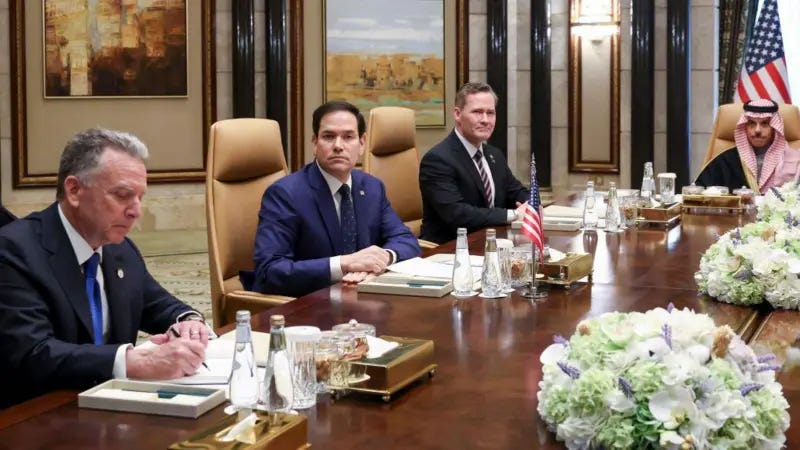
“He's relying on this one person who he knows, professionally and socially from New York, because he can trust him,” the official added.
Another former White House official pointed out that American embassy staff, who usually play a key role in the diplomatic process, have been virtually invisible in current negotiations.
Lynne Tracy, the current U.S. ambassador to Russia and a career diplomat, learned about Witkoff's February trip to Moscow less than a day before his arrival, a source familiar with the visit said.
According to Daniel Fried, a veteran diplomat who spent 40 years at the State Department and worked on U.S.-Russian relations, some serious “Russia hands” do remain in the department: "Not at the very top, but at decent policy positions within the European bureau.”
However, a different ex-White House source said a background like this meant little in Washington’s current climate.
"You could be the most knowledgeable person in the history of U.S. experts on Russia. And if the president or your boss aren't interested in what you have to say, it doesn't matter,” they said.
"There's a rule of thumb I've used for dealing with Russian officials that they will pitch their level of bullshit based on their assessment of your level of ignorance"
A historic shift
This new approach marks a dramatic shift not only from the Russia policies of previous presidents but also those of Trump’s first administration.
Since the Reagan era, the president has personally handled the Russia brief, sources said, while relying on experienced advisors and institutional support from the National Security Council, the State Department, the Pentagon, intelligence agencies, and the US Embassy in Moscow.
Ronald Reagan, for example, leant on Richard Pipes, a Harvard professor of Russian studies who was fluent in the language and had published widely on Russian and Soviet history.
During the collapse of the Soviet Union, Condaleeza Rice was an advisor to George H.W. Bush’s Secretary of State James Baker. Rice, who would go on to play that role herself in George W. Bush’s administration, had a doctorate in political science specialising in U.S.-Russian relations and had studied in Moscow.
And Bill Clinton had Deputy Secretary of State Strobe Talbot, who studied Russian literature at Yale and helped translate Khruschev’s memoirs.
In Trump’s first administration, Fiona Hill, one of the West’s leading experts on U.S.-Russia relations, served on the National Security Council, though she left in 2019 over disagreements with the president over their respective approaches to Moscow.
Trump is hoping to avoid clashes like these in his second term, sources said.
“[In the first administration] you had a set of officials who were not aligned with the president and who did not agree with the president,” a source told the BBC.
“Policymaking was largely crippled by the domestic political scrutiny of the 2016 election [when Russia was accused of interference]. So Trump had things that he wanted to do with Russia, but he felt limited because of the political pressures he was facing and the pressures he was facing from within his own team."
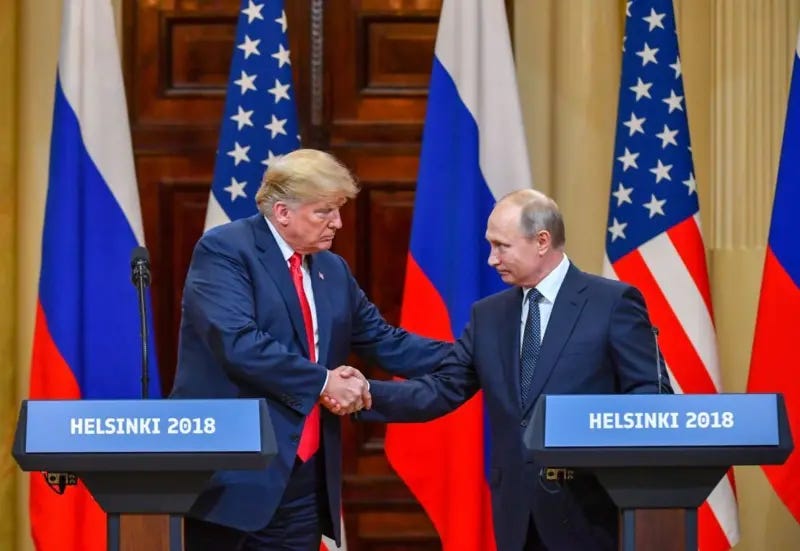
One-on-one with Putin
In Witkoff’s own team there are no Russia specialists, an ex-White House source told the BBC, meaning that he is apparently preparing for talks with Putin without expert briefings. Two former State Department officials said they were surprised by Witkoff’s limited knowledge of the country.
Following talks between Putin and Witkoff in April, the Financial Times and US media published elements of a proposed peace plan reportedly pushed by Washington: recognition of Crimea as Russian, lifting sanctions, and Ukraine renouncing any hope of joining NATO.
These proposals, which aligned closely with Putin’s stated goals, alarmed Kyiv and European allies.
"The US agreement to recognise Crimea as Russian and to lift sanctions at some point shows some awareness of what Russia wants but tilts heavily towards letting Russia assert a sphere of influence including Ukraine and its trade routes," says James O'Brien, a former senior official at the State Department.
Fried, the veteran diplomat, said such maximalist demands should not have been a starting point for negotiations.
“Witkoff needs to see through [these demands] himself or else he will get a very bad deal for his president," Fried said.
"There's a rule of thumb I've used for dealing with Russian officials that they will pitch their level of bullshit based on their assessment of your level of ignorance", he added.
"Witkoff knows nothing about Russia, nothing about Ukraine, nothing about their history, nothing about armed conflict, nothing about how to negotiate an acceptable ceasefire, and he has shown himself very susceptible to Putin's manipulation"
Another path?
Both O'Brien and Fried believe that the White House could put more pressure on Moscow. Trump could convey to Putin that the U.S. will cut Russia's oil revenues unless Russia stops the fighting on a specific date, Fried said.
A basic plan - including a ceasefire and security guarantees for Ukraine - is still possible and would show Trump had achieved more than predecessor Joe Biden, Fried said.
Fried, citing his own sources, said that the State Department and the US Treasury Department are indeed preparing options for additional sanctions against Russia, despite Secretary of State Rubio’s comments earlier that such punitive measures would mean “walking away” from a deal.
Rubio said that the parties were currently “close, but not close enough” to ending the conflict.
Opinions remain sharply divided over whether Witkoff is the man to get a successful deal across the line.
"As far as I can see, Witkoff knows nothing about Russia, nothing about Ukraine, nothing about their history, nothing about armed conflict, nothing about how to negotiate an acceptable ceasefire, and he has shown himself very susceptible to Putin's manipulation", said former national security advisor Bolton.
Others take a less strident view, pointing out that even the Biden administration - in which officials with regional expertise played a greater role - made little progress towards ending the war.
"Having fresh approaches is always helpful,” said a former White House official who worked on the Russia portfolio. “No matter who had won the election last November, I think there was definitely going to be an impulse for taking a fresh look at this. And trying to find a way to deescalate: if not end the war, reduce the costs for Ukraine in particular.”
The ex-official added: “No one wanted this kind of grinding status quo to continue. But there are also really important questions about how the war ends. And I think in terms of American interests, it's really important that Russia not be seen to be rewarded for this aggression against its neighbour.”
Read this story in Russian here.
Russian version edited by Anastasia Lotareva. Russian authorities have included Liza Fokht and Anastasia Lotareva in the register of "foreign agents". The BBC strongly objects to this decision and will challenge it in court.
English version edited by Theo Merz.




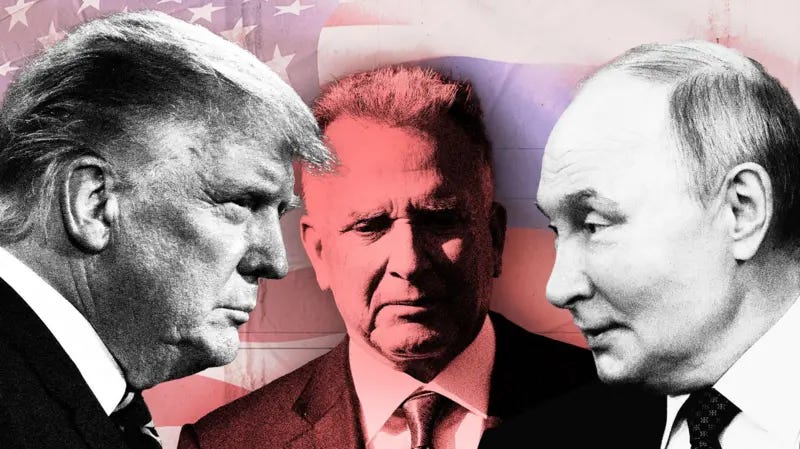
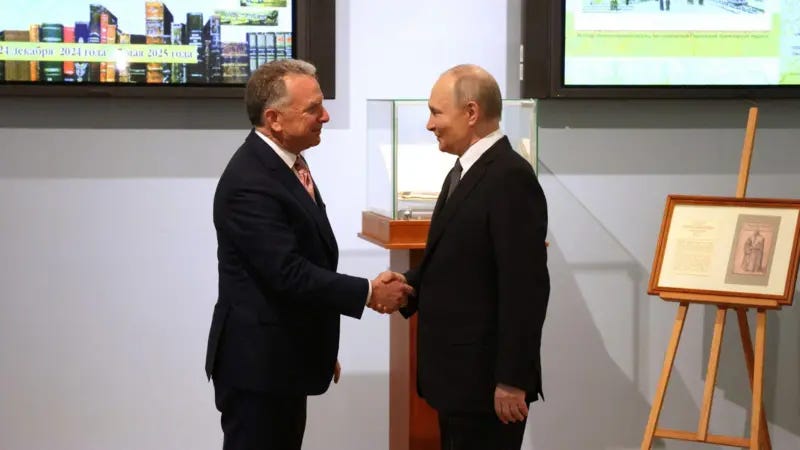
A total fiasco.
If Witkoff wanted to learn something about the subject he is supposed to have already mastered, he could do worse than read on one of his journeys to Moscow the 277 pages of Johns Hopkins Prof Eugene Finkel's excellent "Intent to Destroy: Russia's Two-Hundred-Year Quest to Dominate Ukraine".
In fact, as your article correctly points out, Witkoff knows nothing about Russia or Ukraine or the background to the conflict he is supposed to help solve.
With his abject admiration for Putin, Witkoff will advise Trump to agree to anything Putin puts forward and Ukraine can be coerced to accept. The objective is solely to enable the facile Trump to claim glory as a "peacemaker".
The problem for Trump and Witkoff is that, however hard-pressed, the Ukrainians will not simply roll over and give up their country and sovereignty to become a Russian vassal again. The self appointed Americans, having already confirmed that they will not help Ukraine with arms, have nothing of substance to offer in this "negotiation".
Your article is quite wrong to describe Kellogg as pro-Ukraine. He may be less overtly pro-Putin than Witkoff and Trump but his failure to acknowledge Russia's manifest aggression in Ukraine and Russia's responsibility for the war speaks volumes about which side he is on.
Sadly true.